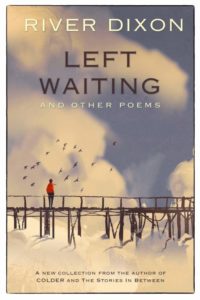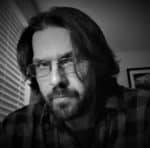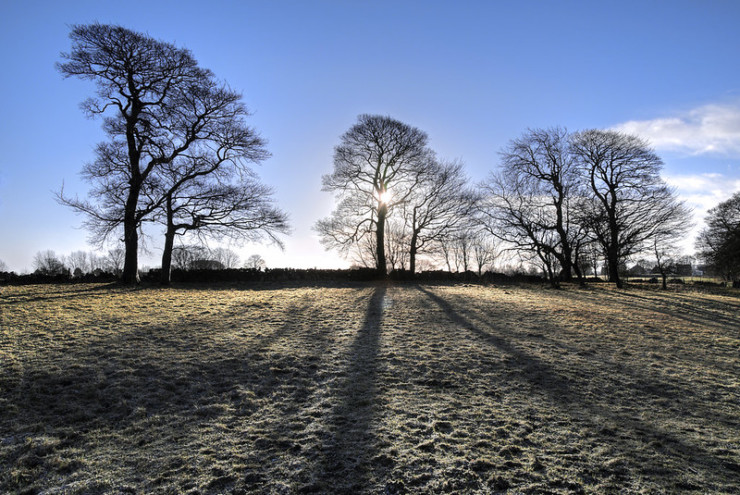Time is our greatest asset, poet River Dixon writes in the introduction to his poetry collection Left Waiting: And Other Poems. It can be painful, unforgiving, and indifferent, he says. Squandering it can be devastating. “But time also gives us those moments when we can step back, put down the load we carry and recognize that there is something more at work here than what we can define. It’s these moments that we find another precious commodity: words.”
Time and words are themes running through Left Waiting. There is a sense of time fading, like the dying rays of the sun or what happens when as we age, and decades seem to pass increasingly faster. Where did the time go? How did the children grow up so quickly? I blinked and the four-year-old was graduating from college.
In these poems, Dixon reaches for words to make sense of it all, to take stock of what’s happened, to ask why something has happened, the something that can’t be explained by the passing of time alone, even though the passing of time is integral to what the “something” is.
It may be a dying relationship, one characterized by drift. It may be a loss remembered from childhood. It may be a feeling of abandonment. It may be walking empty streets, remembering when you didn’t even notice the streets were empty because of the person walking with you. It may even be the act of writing itself. Dixon writes about all of these things, and more, and he does it with a sense of loss and a sense of understanding.
Jar of Coins

Set aside for another day
Corner of a dresser
Where once sat
A woman’s brush
In its place, now
A layer of dust
Telling a tale
Of lost love, when love
Is not enough
If only we had taken
The time to stand still
Even once
In the open courtyards
Beyond the barred windows
And barricaded doorways
We would have seen
There is no greener grass
Than that which grows
Beneath our feet
And still grows, to this day
Even when we see only dirt
Upon which to stand

River Dixon
Each of the 61 poems in the collection uses only commas for punctuation. There are no periods, semicolons, colons, or question marks. This lack of punctuation emphasizes an emotional flow of the words and thoughts, almost a stream of consciousness, but one that’s focused and deliberate. We’re engaged in serious thought here; we’re trying to make sense of what is.
Dixon is a poet and fiction author. He’s published Beyond the Field, a story for both children and adults; Colder: A Collection of Poetry and Prose; and The Stories in Between. He lives in the American Southwest, or, as he describes it, he “has unknowingly found himself trapped in the incessant heat and beauty of Arizona.” And this is where he writes his poems and his stories.
Left Waiting can be characterized as a collection about nostalgia, understanding, loss, regret, acceptance, and self-knowledge. Oddly enough, it’s also about self-forgiveness. Time moves on relentlessly, and what Dixon uses to grasp it and understand it is words.
Related:
River Dixon talks with The Wombwell Rainbow
Photo by Simon Harrod, Creative Commons, via Flickr. Post by Glynn Young.
__________________________

“I require all our incoming poetry students—in the MFA I direct—to buy and read this book.”
—Jeanetta Calhoun Mish
- Poets and Poems: Alison Blevins and “Where Will We Live if the House Burns Down?” - July 1, 2025
- Poets and Poems: Paul Pastor and “The Locust Years” - June 26, 2025
- What Happened to the Fireside Poets? - June 24, 2025

Leave a Reply